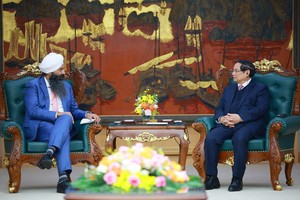Portugal is finally applying a long-delayed accord to standardise spelling in Portuguese-speaking countries, but in random fashion that has left most residents baffled about how to use their alphabet.
Ironically, Portugal's press has taken the lead in using the new spelling while the government -- via the schools -- continues its hesitation waltz over a reform approved by parliament in 2008 after a 20-year debate.
"It is absurd," said Nuno Pacheco, co-director of one daily, the Publico, which has so far refused to enact "a reform full of contradictions".
"Our children read newspapers that do not use the same spelling they are taught at school," he said.
The confusion has revived an old sore point over what some saw as a David vs. Goliath battle -- only this time David lost: under the 1990 accord, spelling in the world's eight Portuguese-speaking countries moves to the more phonetic form employed by Brazil.
As opponents point out, the English and Americans co-exist as neighbours ... or neighbors, so why can't Portuguese-speaking countries do likewise.
"It is a bad spelling reform and a political instrument for the expansion of Brazil," said linguist Antonio Emiliano.
He and other critics see the reform, already in place in Brazil, as tantamount to Portugal's "cultural abdication" to the commercial power of its vast former colony -- which claims 190 million of the world's 230 million Portuguese speakers.
Yet many support the reform, like Luis Miguel Viana, information director at Lusa, Portugal's public news agency which announced in early February it would embrace the change.
"Standardised spelling opens up major markets, notably in Brazil," he said.
Portugal's sports newspaper Record was actually the first to take the plunge, switching to the new spelling last year.
After Lusa's announcement this month, several other newspapers said they too would adopt the changes -- a breakthrough as newspaper and literary types had been among those baulking at what they considered a dumbing down of their cherished language.
The government declared a six-year transition period -- until 2014 -- for the change. Yet the education ministry has repeatedly delayed implementing the new rules and said both old and new spellings will be accepted in schools until 2014.
And even the newspapers said they would only change "progressively", with one regional paper saying it would apply the reform "about 70 percent in an initial period", all adding to residents' confusion.
The uniform spelling is aimed at making Internet searches easier, legal documents more standard and promote a bigger market for film and book productions in the Lusophone countries -- a world from the ancient Roman province of Lusitania, today's Portugal.
Outside Portugal and Brazil, these include Angola, Cape Verde, East Timor, Guinea Buissau, Mozambique and Sao Tome and Principe. Portuguese is also spoken in some Asian pockets, including the special Chinese administrative region of Macau and India's Goa state.
Under the reform, the consonants P and C -- which can sound very different in Rio, Lisbon or Maputo -- are removed where they are silent, as in Brazilian Portuguese. Words like "optimo" (great) or "direccao" (direction), as they have been spelled in Portugal, will become "otimo" and "direcao".
The reform also expands the Portuguese alphabet to 26 letters by adding K, W and Y, and includes some new rules for accents.
With schools hesitating, private organisations have stepped in to offer practical lessons.
"Up to now there's been lots of debate but very little scientific information," said Elisabete Rodrigues, a 52-year-old teacher who attended a recent Saturday class given by linguist Joao Malaca Casteleiro, one of the "fathers" of the standardised spelling.
Many brows wrinkled when the students -- 20 or so editors, translators and teachers -- learned that P will disappear in the word "Egypt" but not in "Egyptian".
The touchiness is reminiscent of debate in the late 1990s when the four main German-speaking countries revised their spelling system.
"We are trying to invent a unique language that does not exist," Publico co-director Pacheco said. "In truth, as is the case for French or English, there are many variations of Portuguese depending on whether it is spoken in Brasilia, Lisbon, Maputo or Dili".
As exceptions tend to be the rule in language, so it is with the "standardised" Portuguese. Some words will have different, or optional, spellings to take into account linguistic variations across the "Lusophere".
"The hardest part is understanding that there will now be various ways to correctly spell some words," said teacher Rodrigues.
























